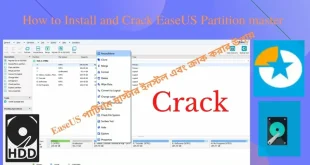In the marine industry, the choice of materials is crucial not just for construction but also for maintaining the longevity and efficiency of marine structures. Among a wide array of materials available today, HDPE sheets stand out prominently. Renowned for their robust durability and cost-effectiveness, these sheets are increasingly becoming the material of choice across various marine applications. HDPE’s adaptability to harsh marine environments is a testament to its strength and resilience, making it an indispensable resource in maritime engineering. From small boats to expansive docks, the reasons for HDPE’s popularity are grounded in its unmatched properties that ensure both performance and reliability in face of the ocean’s relentless forces.
Unique Properties of HDPE Sheets in Marine Environments
HDPE sheets are distinguished by a set of inherent properties that cater perfectly to the demands of marine applications. These characteristics not only ensure the material’s ability to withstand maritime challenges but also underscore its versatility and efficiency. Here’s a detailed look at these properties:
- Exceptional Chemical Resistance: HDPE’s resistance to chemicals is crucial in marine environments, where exposure to saltwater, oils, and other corrosive substances is constant. Unlike other materials that degrade over time due to chemical interactions, HDPE sheets maintain their structural integrity, ensuring long-term performance without significant deterioration.
- Impervious to Water: Water resistance is a fundamental requirement for any material used in marine settings. HDPE is virtually impervious to water, which prevents swelling, rotting, and other water-induced damages that are common in materials like wood and certain metals. This property significantly enhances the lifespan of marine structures built with HDPE plastic sheets.
- High Impact Resistance: The physical demands of marine environments require materials that can withstand impacts from waves, floating debris, and operational stresses. HDPE excels in this regard, offering superior impact resistance which helps in preventing cracks, splits, and other damage that can compromise the safety and functionality of marine structures.
- UV Stabilization: Sunlight exposure is another challenge in marine settings, particularly due to ultraviolet (UV) radiation. HDPE sheets are often UV stabilized, which protects them from the degrading effects of prolonged sun exposure, thus maintaining their physical properties and appearance over time.
- Low Maintenance Requirements: The durability and resistance properties of HDPE lead to lower maintenance needs. Marine structures made from polyethylene sheets do not require frequent repairs or replacements, making HDPE a cost-effective solution for long-term projects.
These properties collectively make HDPE an excellent choice for a variety of marine applications, from the construction of boats and docks to the creation of protective barriers. Its ability to meet the rigorous demands of marine environments not only ensures operational efficacy but also contributes to sustainable practices by reducing the need for frequent material replacements.
Explore HDPE Solutions with Johnston Industrial Plastics for Your Marine Projects!
HDPE sheets are the preferred choice for advanced marine applications across Canada due to their resilience, cost-effectiveness, and versatility. For businesses looking to invest in durable, long-lasting materials, HDPE offers a compelling solution.
For further information or to discuss how HDPE can benefit your specific projects, feel free to contact Johnston Industrial Plastics Limited. We’re here to help you navigate the best material choices for your marine needs.
 Daily Blogger News Stay updated with the latest trends and insights. Your reliable source for daily updates and information.
Daily Blogger News Stay updated with the latest trends and insights. Your reliable source for daily updates and information.







